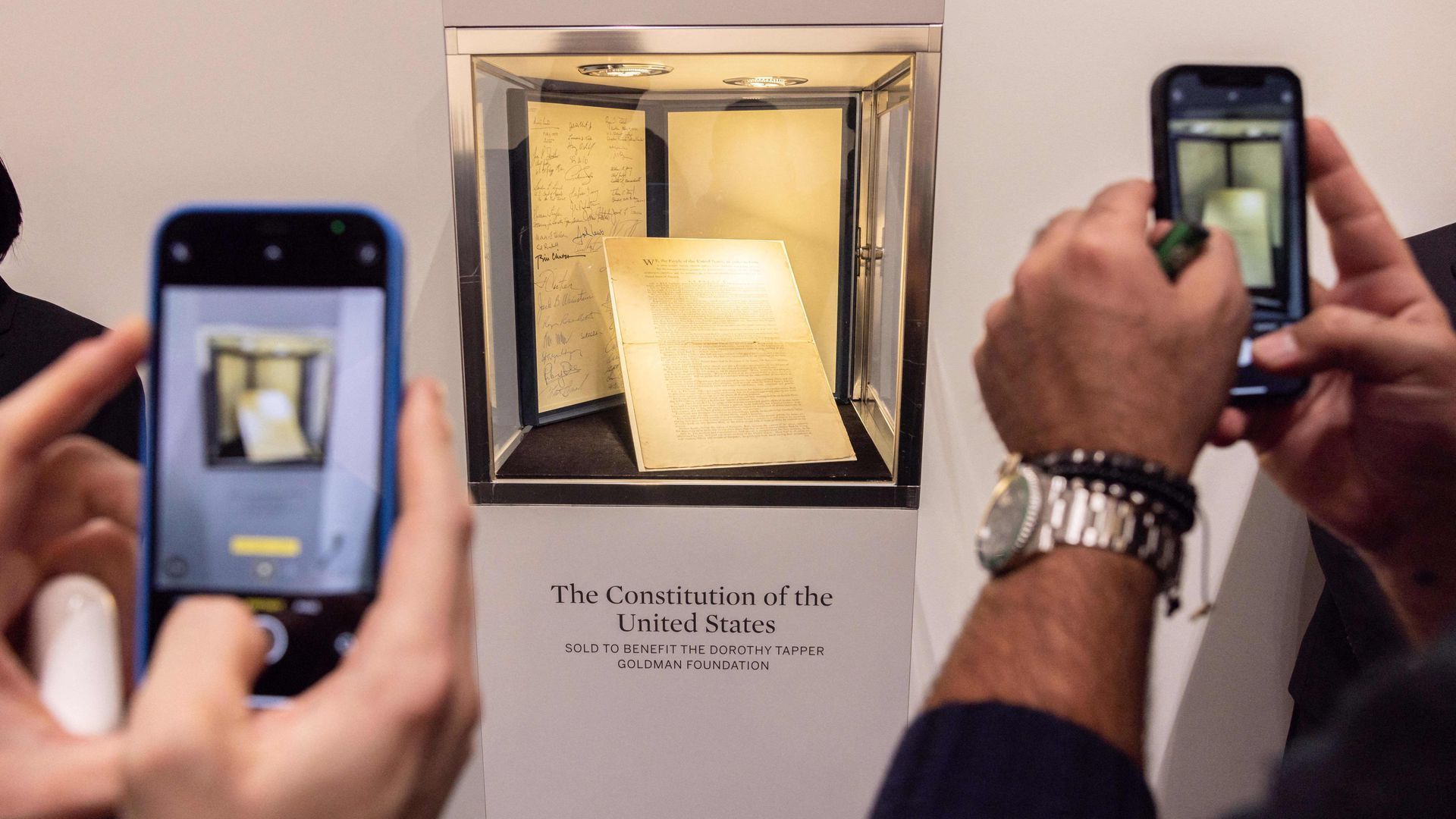Nov 22, 2021 - Economy
Crypto group tries to claw back fees after failed Constitution bid
Add Axios as your preferred source to
see more of our stories on Google.

Photo: Yuki Iwamura/AFP via Getty Images
Add Axios as your preferred source to
see more of our stories on Google.

Photo: Yuki Iwamura/AFP via Getty Images